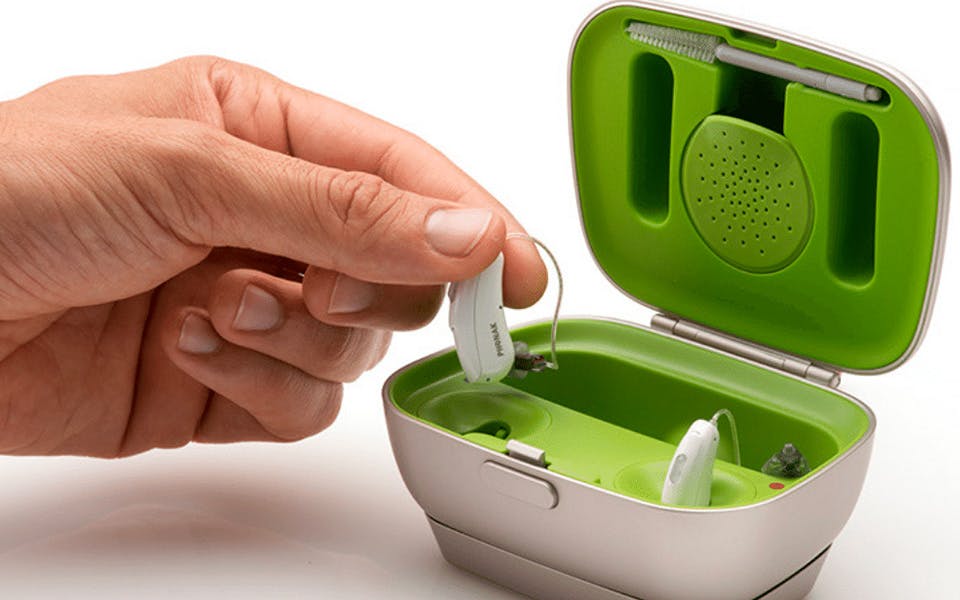The lithium-ion batteries in rechargeable hearing aids provide long-lasting power to support multiple features like Bluetooth connectivity and directional microphones. This battery is used for smartphones and laptops and lasts for several years before it needs replacing.
Here are some of the benefits of wearing rechargeable hearing aids.
A Full Day of Hearing Aid Power
Rechargeable hearing aids have a docking station to charge the devices overnight, so they’re ready to use in the morning. Hearing aids that use disposable batteries must be replaced a few times a week, especially if you stream audio to your hearing aids or use other special features.
Rechargeable batteries are designed to power your devices without draining too quickly. That provides convenience and peace of mind so you can get through your day knowing your hearing aids will always work.
Easy to Use
Opening battery compartments and handling small disposable batteries can be difficult if you have dexterity issues, arthritis or a health condition that causes tremors. The lithium-ion batteries in rechargeable hearing aids aren’t removable, so you don’t have to worry about losing or replacing them. All you have to do is take out your devices at night and place them in their charging station; no battery swaps are required.
Long-Term Use and Savings
The batteries in rechargeable hearing aids last for the life of the device, roughly five to seven years. Rechargeable lithium-ion batteries are made with materials that prevent premature wear and tear to optimize the length of use.
Disposable hearing aid batteries are inexpensive, but consider how often you replace them weekly. Multiply that by two hearing aids, and the expense will begin to add up over a year.
Rechargeable hearing aids tend to cost more upfront than their disposable battery counterparts, but it’s important to remember that they offer long-term savings. You won’t need to worry about purchasing disposable batteries every week or month for several years.
Eco-Friendly Batteries
Disposable hearing aid batteries and packaging generate lots of waste. Most disposable batteries end up in landfills and contain lead, mercury, acid and other toxic chemicals that are hazardous to the environment. Those chemicals leech into the ground, negatively impacting soil and water quality. Buying rechargeable hearing aids reduces the amount of battery waste you produce, so you’ll improve your hearing while protecting the environment. Hearing Associates has a battery recycling program for hearing aids that use disposable batteries.
Eliminate Choking Hazards
Disposable hearing aid batteries contain chemicals that are extremely dangerous if ingested. Young children and pets could easily get their hands on your hearing aid batteries if you don’t secure them out of reach. Rechargeable hearing aids eliminate that problem since the battery is built into your hearing device and cannot be removed.
Moisture Resistant
The sealed battery compartment of rechargeable hearing aids helps keeps moisture out and reduces the risk of battery corrosion. Most rechargeable hearing aids have an Ingress Protection 67 rating. IP measures how well a hearing aid keeps out debris and moisture, with IP68 being the highest rating. Rechargeable hearing aids are relatively protected if you accidentally get them wet or drop them in less than one meter of water.
Hearing Associates offers rechargeable hearing aids from Oticon, ReSound, Starkey, Widex and Phonak. Call 888-760-2032 or schedule online to make an appointment and learn more about rechargeable hearing aids.


